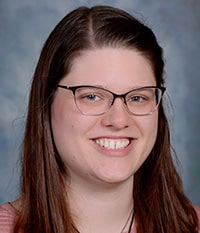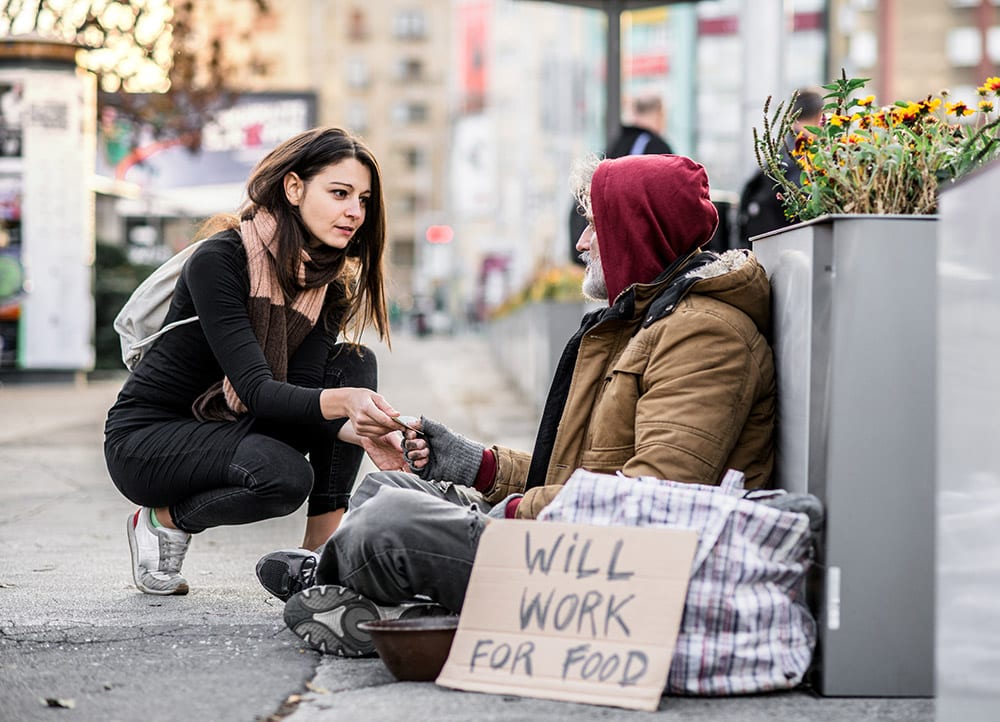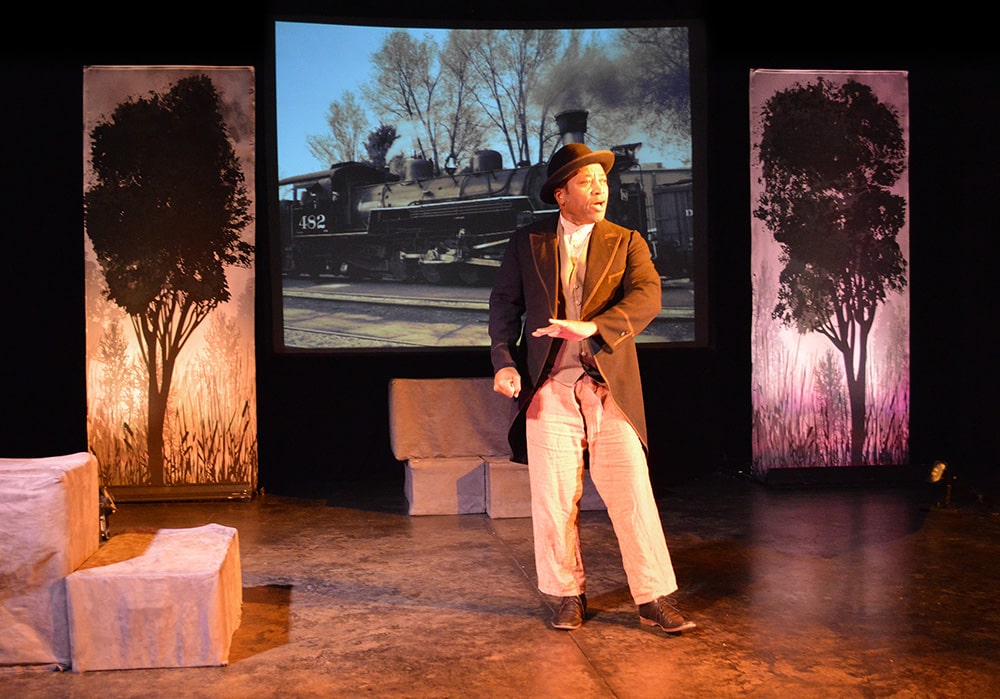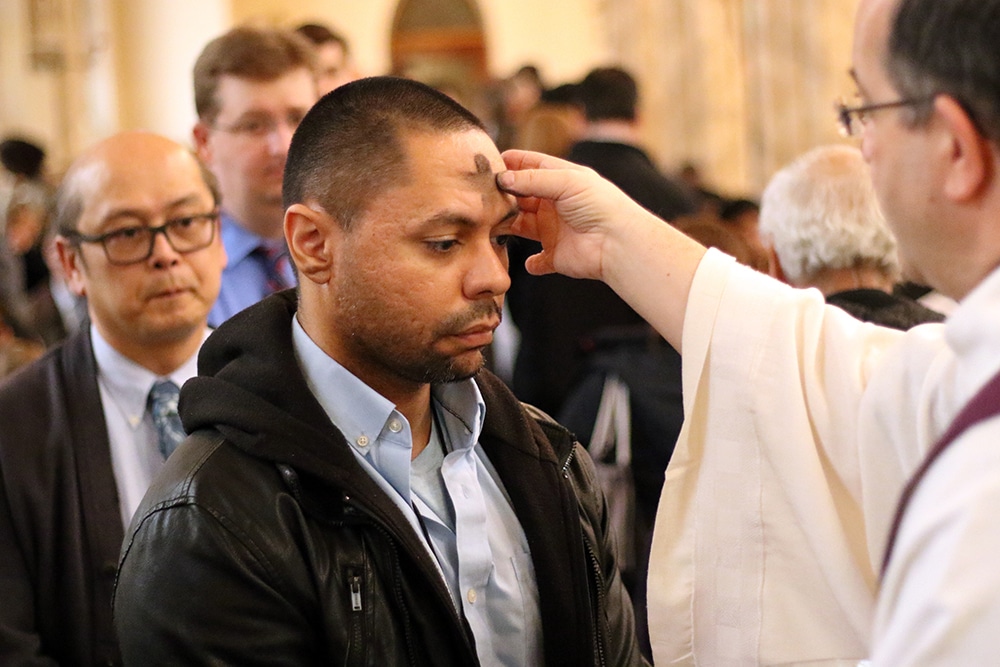 Earlier this year, my fiancé and I were getting lunch with a priest friend, Father Stephen. After giving him the update on our lives, my fiancé asked, “So, what’s new with you, Father?” Father Stephen shared a few details about the parish and priest life, but he quickly turned his attention to a ministry he wanted to form: an outreach program to serve the homeless in our community. The idea had been brought up by another parishioner and cemented itself in this priest’s heart.
Earlier this year, my fiancé and I were getting lunch with a priest friend, Father Stephen. After giving him the update on our lives, my fiancé asked, “So, what’s new with you, Father?” Father Stephen shared a few details about the parish and priest life, but he quickly turned his attention to a ministry he wanted to form: an outreach program to serve the homeless in our community. The idea had been brought up by another parishioner and cemented itself in this priest’s heart.
One story he shared in particular convicted my own heart. A couple he knew encountered a homeless man one day, and after giving him something — maybe food or money — they were about to drive away when they realized they had not even asked his name. Backtracking, they asked the man his name … and ended up having a 45 minute conversation with him. At the end of it, he told them it had been the first time he had talked to someone in a year. It likely had been the first time he had made eye-contact with another person in the same amount of time, let alone heard his own name said from someone else’s lips.
Reaching out to the homeless — or the needy in general — is not a skill I’ve cultivated in my life. Sure, I’ve put together lunch bags of food for the homeless while making a day trip to Chicago with my youth group while in high school. I’ve volunteered at a food pantry or programs like Feed My Starving Children a time or two. But these were isolated experiences.
During the season of Lent, we are called to do three things in a renewed way: pray, fast and give alms. The last one has always been the hardest for me. Sure, it’s easy — or at least simple — to drop $20 in a special collection basket at Mass on occasion or donate your pennies to Catholic Relief Services’ annual Rice Bowl program. Both are good and necessary. But I would argue — at least in my life — that they can be a cop out when it comes to giving alms. Or, at the very least, we should strive to do more in addition to these donations if they are in our means.
While we typically see giving alms from the perspective of money, I would argue that there is a missing element: encounter with the people we are serving. True, we can’t be all things for all people, and our primary call to charity is often with those in our immediate lives — our loved ones, friends, co-workers, etc. But what about those in our community?
The Church teaches that problems should always be addressed first at the most local level. So, while donating to programs that help people the world over is good, we should also see how we can help those in our immediate community.
In addition to being prompted by the Lenten season, this idea has frequently come to me in prayer because I often see the same homeless gentleman soliciting money on a street corner on my way to the grocery store. I’ve given him a gift card to get food a time or two, but I keep wondering how I can give more. Maybe a sandwich on my way to get my own groceries. Maybe some bottled water, socks, lip balm or lotion. And, most importantly, maybe I’m simply meant to give him a smile, ask his name (again, because I forgot it after the first time) and help him feel seen, that he has dignity no matter his situation.
If you live in an area with a large homeless population, I’m sharing the words the Lord seems to be whispering to my heart: don’t ignore them. Do what you can, whatever you feel the Lord encouraging you to do. That could be money. That could be food. That could be information to the nearest shelter or food pantry. That could be simply praying for someone you see on the side of the road. But we are called to do so much more than ignore them. We are called to stretch our hearts, to go out of the way for those in need.
Charity shouldn’t be convenient. Or at least that is what I feel I’m learning in this season. Christ himself told us in Matthew’s Gospel to serve the needs of those who are overlooked in society, and to paraphrase what Father Stephen said, I don’t want to be in purgatory longer than necessary because I decided it was too uncomfortable or inconvenient to go out of my way for those in my community. We can all do something. It’s up to us to listen to the Lord’s promptings to discern what that can be.
Ava Lalor is assistant editor for Our Sunday Visitor and editor for Radiant magazine.







